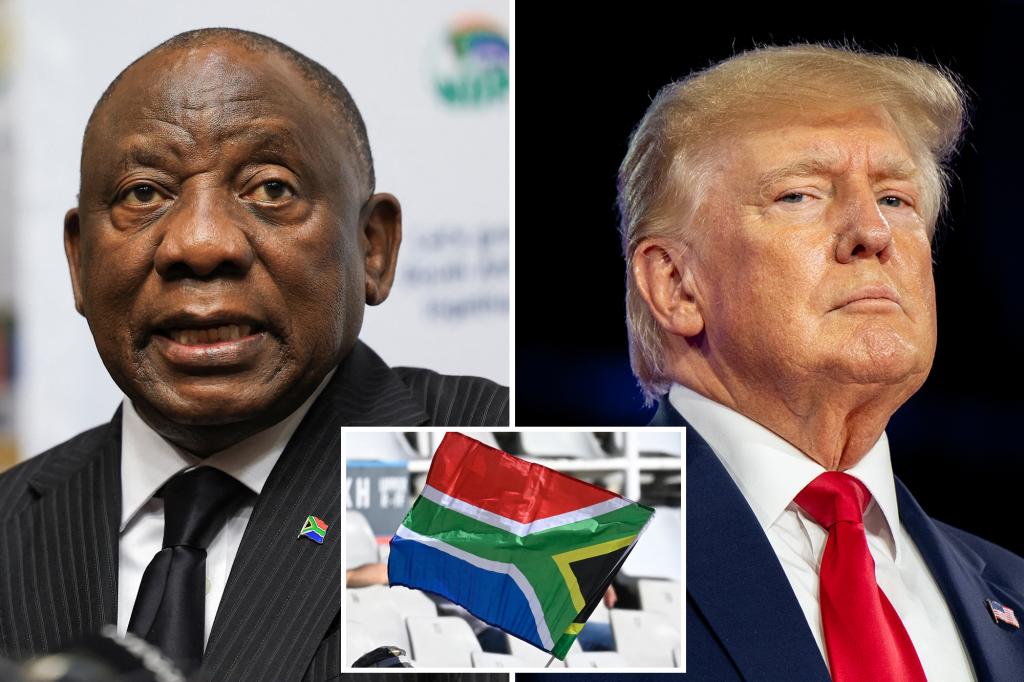Former US President Donald Trump’s pronouncements on South Africa have consistently sparked controversy and raised concerns about the accuracy of his claims and the potential impact on US-South Africa relations. In a 2024 Truth Social post, Trump accused South Africa of “confiscating land” and “treating certain classes of people VERY BADLY,” vowing to cut off all future funding to the country pending a full investigation. This statement reignited a familiar theme from his first term, where he similarly raised concerns, without providing substantial evidence, about alleged large-scale killings of white farmers and land seizures. While the exact trigger for Trump’s 2024 post remains unclear, it echoed earlier pronouncements and underscored his tendency to weigh in on South African affairs based on what critics perceive as biased and unverified information.
The core of Trump’s allegations revolves around the issue of land reform in South Africa, a complex and historically charged process aimed at addressing the legacy of apartheid. Under apartheid, the vast majority of land was owned by the white minority, leaving black South Africans dispossessed and marginalized. Post-apartheid, the South African government embarked on land redistribution efforts to rectify this historical injustice. However, the process has been fraught with challenges, including bureaucratic hurdles, legal disputes, and concerns about potential economic repercussions. While some instances of land seizures without proper compensation have occurred, the narrative of widespread, systematic confiscation propagated by Trump and others is disputed by the South African government and many analysts.
Trump’s threat to cut off funding to South Africa carries significant weight, given the substantial financial assistance the US provides to the country. US aid to South Africa supports various programs, including HIV/AIDS prevention and treatment, economic development, and democratic governance. Withdrawing this aid would have a detrimental impact on these crucial initiatives and potentially undermine US influence in the region. Furthermore, such a drastic move could strain the diplomatic relationship between the two countries, especially considering South Africa’s prominent role on the global stage, including its presidency of the G20 in 2024, followed by the US’s assumption of the presidency.
Trump’s statements on South Africa appear to align with a narrative often promoted by certain groups, including some within South Africa and prominent figures like Elon Musk, who allege widespread persecution of white farmers. Musk, a close ally of Trump and a native of South Africa, has publicly echoed similar claims, further amplifying the narrative. However, these claims are challenged by many who argue they misrepresent the situation and fuel racial tensions. Fact-checking organizations have debunked the claims of widespread farm murders and land seizures targeting white South Africans, highlighting the complexity of crime statistics and the broader context of inequality and violence in the country.
The South African government has consistently refuted Trump’s allegations, maintaining that the land reform process is being carried out within the confines of the law and aimed at addressing historical injustices. They have also emphasized their commitment to upholding the rights of all citizens, regardless of race. While acknowledging the challenges and complexities of land reform, the South African government maintains that it’s a necessary step toward achieving social and economic justice. They emphasize the need for a nuanced understanding of the situation, rather than relying on simplistic and often misleading narratives.
The recurring tension between Trump’s pronouncements and the South African government’s responses underscores the challenge of navigating complex international relations, particularly when dealing with sensitive domestic issues. Trump’s rhetoric, often amplified by social media and influential figures, has the potential to exacerbate existing tensions and complicate efforts to address the underlying challenges. It also highlights the importance of accurate information and nuanced analysis in shaping public discourse and policy decisions. The implications of Trump’s statements extend beyond the immediate diplomatic exchanges, potentially influencing public perception and shaping the narrative surrounding land reform and race relations in South Africa.

